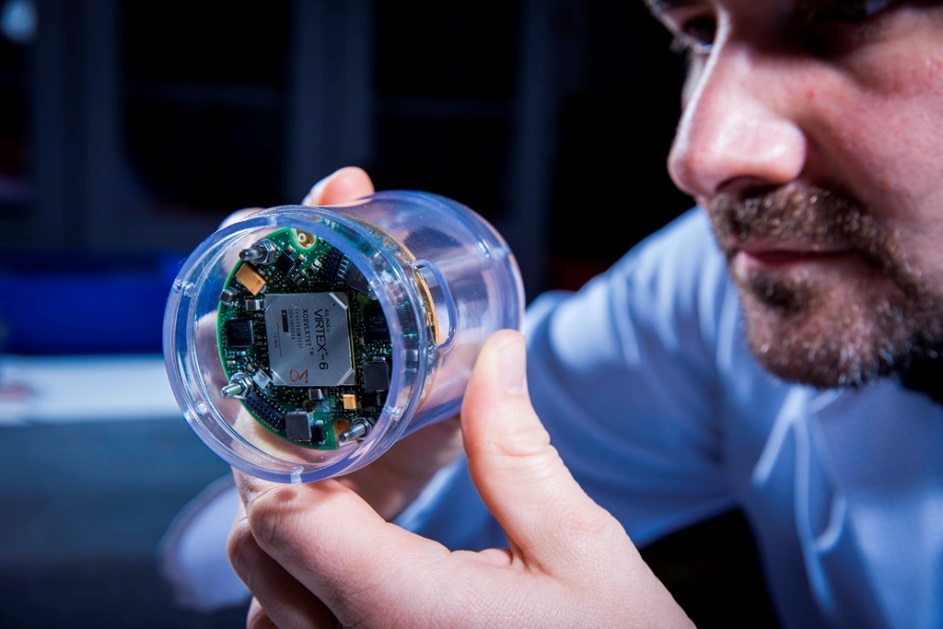Universal Miniaturized Missile Data Link (UMMD)
 The Universal Miniaturized Missile Data Link (UMMD) of MBDA is a fully customizable, software defined radio solution for missiles. The component enhances the capabilities of a missile system by enabling the operator to exchange information through a secure wireless communication link with the missile during engagement.
The Universal Miniaturized Missile Data Link (UMMD) of MBDA is a fully customizable, software defined radio solution for missiles. The component enhances the capabilities of a missile system by enabling the operator to exchange information through a secure wireless communication link with the missile during engagement.
Description
UMMD is a key component for precise, reliable and cost efficient missiles. It is designed for Line-Of-Sight (LOS) and Non-Line-Of-Sight (NLOS) scenarios and enables new Man-In-The-Loop (MITL) features such as en-route recce, in-flight target update and mission abort. Its modular, small scale design facilitates the integration of the component in existing and next generation weapon systems.
For the development of the data link MBDA relies on its experience and proven excellence in Radio Frequency engineering, signal processing algorithm development and hardware implementation.
Missile data link applications
- Man-In-The-Loop (MITL)
- Mission abort
- Eyes on target
- Transmission of surveillance information (en-route recce)
Hardware features
- Modems for uni- and bi-directional communication (modular configurable)
- Dimensions of PCBs: diameter 57mm, height < 20mm, weight < 50g
- High dynamic receive power range
- High receiver sensitivity
- Low noise figure
- Variable maximum range
- Flexible supply voltages: 7 – 30V
- Adaptable carrier frequency range: 2 – 4GHz
- Interfaces: RS232, RS422, SPI, Ethernet
- Application-specific antenna patterns and designs (e.g. wrap-around antenna)
- FPGA-based signal processing
- Low power consumption: < 10W (in receive-only mode)
Software features
- Customer- and application-specific waveforms (e.g. single- or multi-carrier)
- Rapid waveform development by system-driven design
- Robust synchronization at supersonic speeds (Mach 3 and beyond)
- Scalable channel bandwidth and data-rate
- Powerful error-correction
- Optional payload data encryption